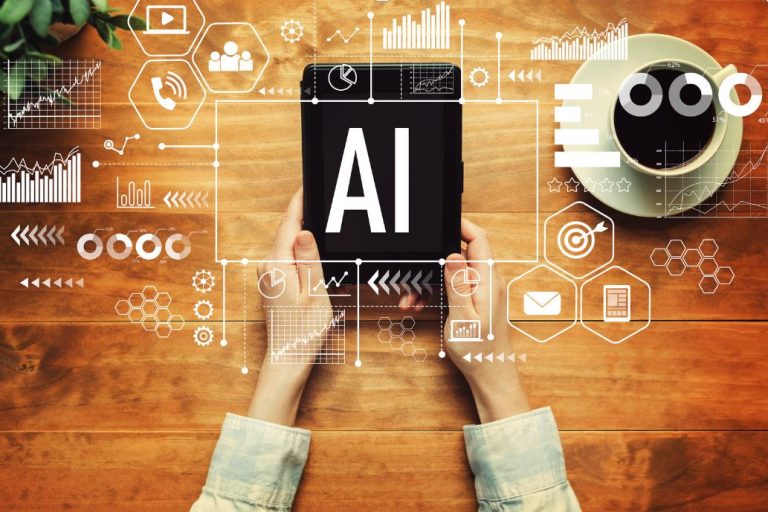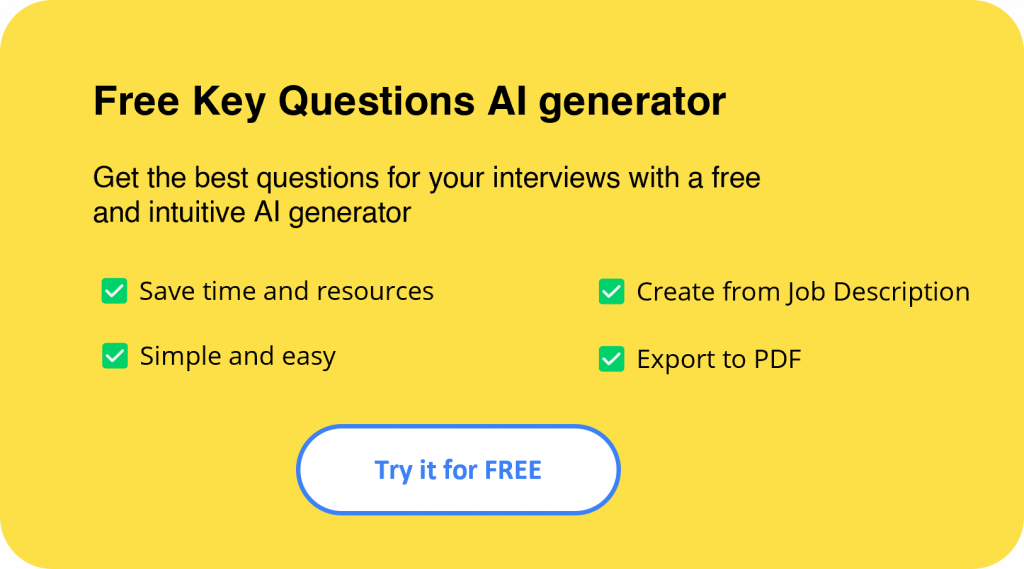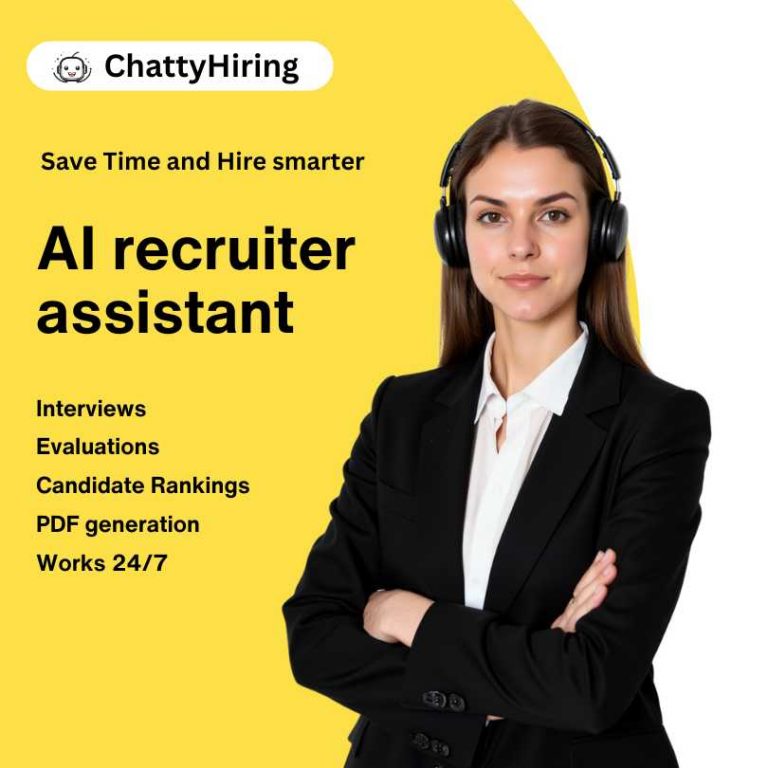In todays world, AI Generative tools are essential to help HR Professionals. In the ever-evolving landscape of Human Resources, AI has emerged as a game-changer. AI tools for HR, particularly generative AI, have revolutionized the way HR teams operate. From improving the hiring process to enhancing employee engagement. These tools are becoming indispensable in the field of human resources.
In this article, we will explore what generative AI is, the challenges HR faces with AI, and seven key solutions that AI generative tools provide for HR professionals.
What is Generative AI?
Generative AI refers to a subset of artificial intelligence that focuses on generating human-like text, images, or other content. These AI models are trained on vast amounts of data. They can generate creative, contextually relevant content based on the input they receive.
In the context of HR, generative AI can be harnessed to create a wide range of tools. These solutions simplify and streamline various aspects of the HR profession. Here are some of the significant advantages of Generative AI:
- Content Generation: Generative AI can produce a vast amount of content quickly and efficiently. This is beneficial for copywriting, and generating text for websites, blogs, and social media. It saves time and resources.
- Creative Art and Design: In the field of art and design, Generative AI can create novel and unique artworks, styles, and visual concepts. Artists and designers can use AI as a tool to spark creativity and generate new ideas.
- Automation and Efficiency: Generative AI automates various tasks, reducing the need for manual labor. It can handle repetitive and time-consuming tasks, such as data entry, content creation, and report generation.
- Natural Language Processing: Language models like GPT-3 can understand and generate human-like text. This is valuable for chatbots and virtual assistants, providing more natural and efficient interactions with users.
- Enhanced Personalization: Generative AI can generate personalized recommendations. Product suggestions and user-specific content based on individual preferences and behaviors.
- Content Translation: AI-powered language models can translate text and even maintain context between languages. This improves the accuracy and naturalness of any translation.
- Data Augmentation: Generative AI can create synthetic data to augment datasets. This improves the robustness and diversity of training data for better model performance.
- Data Generation for Testing: AI can create test data for software development and quality assurance. This ensures that applications are thoroughly tested with a wide range of data scenarios.
- Scalability: Generative AI allows organizations to scale content production. Customer interactions and data generation do not require human resources anymore.
- Accessibility: AI-generated content, enhances accessibility for individuals with disabilities. Their capacity to interact with digital content can improve highly.
- Simulation and Training: In certain fields, Generative AI is used to create realistic training simulations. Different scenarios can be created to provide a safe and controlled environment for learning and practice.
What are the Challenges of HR with AI?
While AI brings significant advantages to HR, it also presents challenges. As Gartner has antcipated, HR professionals must adapt to the changing landscape and integrate AI tools effectively. Some of the key challenges they face include:
- Data Privacy and Security: Handling sensitive employee data with AI tools requires robust security measures to protect individuals’ privacy.
- Bias and Fairness: AI algorithms can inherit biases present in the data they are trained on. HR professionals must ensure fairness and diversity in their AI-driven decisions.
- Resistance to Change: Some employees and HR professionals may be hesitant to embrace AI. Fear of job displacement or a loss of the human touch in HR can be consider as a threat.
- Oversaturation of Data: Vast amounts of data can be overwhelming without the right tools and strategies to process it effectively.

7 Key functions that can be addressed by HR Professionals
Below we list some topics that can be addressed by HR thanks to AI generative tools. These tools offer innovative solutions to address the challenges in HR and bring about more efficiency, accuracy, and better decision-making. Let’s delve into seven specific applications of generative AI that can significantly benefit HR professionals:
1. Interview Questions If You Don’t Have Time
The Challenge: HR professionals are often inundated with tight schedules. They have it difficult to craft personalized interview questions for every candidate. This can lead to inconsistency in the interview process and may overlook relevant aspects of a candidate’s qualifications.
The Solution: AI generative tools come to the rescue by quickly generating a set of interview questions based on the job description. These questions are contextually relevant and consistent, ensuring a fair assessment of candidates. The advantage is not just in time-saving but also in the improved objectivity and uniformity of the interview process.
2. Posts to Improve Brand Employability
The Challenge: A strong employer brand is vital for attracting top talent. However, HR professionals often struggle to create engaging and informative job postings. Company profiles and social media content are driven by marketing, not by HR, and the employment brand is not always there.
The Solution: Generative AI can assist in crafting compelling and informative content. By generating job postings and company profiles, HR professionals can ensure that their employer brand is effectively communicated. This leads to increased brand recognition, attracting candidates who resonate with the company’s values.
3. Job Interviews
The Challenge: Traditional job interviews can be subjective and prone to bias. Assessing candidates based on responses, facial expressions, and body language can be challenging. Many times is difficult to ensure consistency in evaluation.
The Solution: AI-driven interview tools can objectively assess candidates. They analyze not just the verbal responses but also non-verbal cues. They provide valuable insights into a candidate’s suitability for a role. This leads to more informed and unbiased hiring decisions, improving the quality of talent acquisition.
4. Recommendations for Improvement with Unselected Candidates
The Challenge: Rejecting candidates is an inherent part of the hiring process. Often this rejection is translated in negative candidate experience. HR professionals may lack the resources to provide personalized feedback and development suggestions to unselected candidates.
The Solution: Generative AI can generate personalized feedback and development recommendations for unselected candidates. This fosters a positive candidate experience, potentially turning rejected candidates into advocates for the company. Moreover, it builds a talent pool for future opportunities, saving time and resources in future hiring processes.
5. Explanation of Culture to Interested People
The Challenge: Articulating a company’s culture can be challenging. Not conveying it effectively can lead to a misalignment between the organization and its potential candidates.
The Solution: AI can generate detailed descriptions of the company culture, making it easier for interested candidates to understand what to expect. This leads to more informed and relevant job applications. Candidates who apply will defenitly have a better understanding of the organization’s values.
6. Soft Skills Assessments
The Challenge: Assessing soft skills, such as communication, teamwork, and adaptability. Soft Skills can be notoriously challenging, often relying on subjective judgment.
The Solution: Generative AI tools create scenarios and questions that evaluate candidates’ soft skills objectively. This leads to a more comprehensive understanding of their abilities beyond technical qualifications. HR professionals can make more informed decisions regarding a candidate’s suitability for a role.
7. Communication Interface Through Customizable Avatars
The Challenge: Handling a high volume of HR inquiries and communicating essential information to candidates and employees can be time-consuming and repetitive.
The Solution: AI-generated avatars serve as interactive interfaces for candidates and employees. These avatars can efficiently answer frequently asked questions. Providing information about company policies and a personalized touch to HR communication. The advantage lies in saving HR professionals’ time and ensuring that candidates and employees receive timely and consistent information.
The Future of HR with AI
The integration of AI generative tools into HR processes is just the beginning of a transformative journey. As AI technology continues to evolve, HR professionals will witness the following trends:
- Personalized Employee Experience: AI will help tailor the employee experience, from onboarding to professional development, based on individual preferences and goals.
- Predictive Analytics: AI will play a more prominent role in predicting turnover. Identifying potential leaders and recommending strategies will increase employee retention and development.
- Diversity and Inclusion: AI tools will become instrumental in promoting diversity and inclusion. Mitigating bias in the hiring process and suggesting strategies will create inclusive workplaces.
- Enhanced Employee Wellbeing: AI-driven solutions can support employee mental health and well-being by providing timely interventions and resources.
- Continuous Learning: AI will facilitate continuous learning and upskilling. By suggesting relevant courses and development opportunities AI will help tailoring individual career paths.
In conclusion, AI generative tools are changing the game for HR professionals. They offer innovative solutions to streamline processes. By embracing these tools productivity level in HR can radically grow. HR professionals can unlock the full potential of AI for people managers and build a brighter future for their organizations.
-

A passionate advocate for the future of HR innovation. With expertise in leveraging AI to revolutionize recruitment processes, Carlos has a clear vision: empower HR teams while creating meaningful candidate experiences.
View all posts




